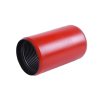- Afrikaans
- Albanian
- Amharic
- Arabic
- Armenian
- Azerbaijani
- Basque
- Belarusian
- Bengali
- Bosnian
- Bulgarian
- Catalan
- Cebuano
- Corsican
- Croatian
- Czech
- Danish
- Dutch
- English
- Esperanto
- Estonian
- Finnish
- French
- Frisian
- Galician
- Georgian
- German
- Greek
- Gujarati
- Haitian Creole
- hausa
- hawaiian
- Hebrew
- Hindi
- Miao
- Hungarian
- Icelandic
- igbo
- Indonesian
- irish
- Italian
- Japanese
- Javanese
- Kannada
- kazakh
- Khmer
- Rwandese
- Korean
- Kurdish
- Kyrgyz
- Lao
- Latin
- Latvian
- Lithuanian
- Luxembourgish
- Macedonian
- Malgashi
- Malay
- Malayalam
- Maltese
- Maori
- Marathi
- Mongolian
- Myanmar
- Nepali
- Norwegian
- Norwegian
- Occitan
- Pashto
- Persian
- Polish
- Portuguese
- Punjabi
- Romanian
- Russian
- Samoan
- Scottish Gaelic
- Serbian
- Sesotho
- Shona
- Sindhi
- Sinhala
- Slovak
- Slovenian
- Somali
- Spanish
- Sundanese
- Swahili
- Swedish
- Tagalog
- Tajik
- Tamil
- Tatar
- Telugu
- Thai
- Turkish
- Turkmen
- Ukrainian
- Urdu
- Uighur
- Uzbek
- Vietnamese
- Welsh
- Bantu
- Yiddish
- Yoruba
- Zulu
Comparison of Bull Plug and Hex Plug Features Benefits and Applications for Various Industries
Bull Plug vs. Hex Plug A Comprehensive Comparison
In various engineering and plumbing applications, understanding the distinctions between different types of plugs is critical for ensuring sealing efficiency and system integrity. Two common types of plugs often encountered are the bull plug and the hex plug. While both serve the primary purpose of sealing openings in pipes and vessels, they differ significantly in design, application, and performance.
Definition and Structure
A bull plug is typically characterized by its rounded end, which is often used for blind applications. This type of plug is designed to fit into a socket or an opening with a smooth contour that provides effective sealing without sharp edges. The rounded shape allows for a more uniform distribution of pressure against the walls of the fitting, which can be beneficial in preserving the integrity of the material being sealed.
Conversely, a hex plug possesses a hexagonal head, allowing for easy engagement with standard tools such as wrenches. The hexagonal design provides a larger gripping surface, which facilitates the application of torque and makes installation and removal straightforward. However, the sealing mechanism in a hex plug may not be as efficient in certain applications, as the flat surfaces can lead to uneven pressure distribution.
Applications
Bull plugs are commonly used in applications where a tight seal is paramount. They are particularly beneficial in situations where fluids or gases might escape; this includes scenarios such as pressure testing systems and sealing off non-functional outlets or connections. Their rounded design allows them to handle high pressures effectively without the risk of cracking or leaking at the seal.
In contrast, hex plugs are often found in applications that require frequent adjustments or maintenance. Due to their design, they allow technicians to easily remove and reinsert the plug without the need for specialized tools. Hex plugs are often used in situations with less stringent sealing requirements, such as drainage systems, where occasional access may be necessary.
bull plug vs hex plug

Sealing Performance
When it comes to sealing performance, bull plugs are generally considered superior in high-pressure situations. The rounded end creates a tighter seal against the opening, reducing the likelihood of leakage, especially under stress. This design is particularly advantageous in water and gas systems where maintaining pressure is crucial.
Hex plugs, while versatile, may not always provide the same level of sealing performance. Because of their flat surfaces, there’s a potential for uneven pressure applied around the periphery of the connection. This could lead to leak points, particularly in applications that experience fluctuations in temperature and pressure.
Cost and Availability
Another consideration is cost and availability. Bull plugs are often manufactured in a variety of materials, including plastic, brass, and stainless steel, which can influence their price points. They may be slightly more expensive due to their requirement for precise manufacturing processes, particularly if they are designed to handle high-pressure environments.
Hex plugs, being standardized in shape and function, tend to be more readily available and often cheaper than bull plugs. Their widespread use across various industries means that they can be sourced easily, contributing to reduced downtime for maintenance or repairs.
Conclusion
In summary, both bull plugs and hex plugs serve essential roles in plumbing and engineering applications. When choosing between the two, it's vital to consider the specific requirements of the application, including sealing integrity, ease of access, and cost constraints. Bull plugs are ideal for high-pressure, leak-free environments, while hex plugs offer convenience and versatility for maintenance tasks. Understanding these differences can help professionals make informed decisions tailored to their needs.
-
Tubing Pup Joints: Essential Components for Oil and Gas OperationsNewsJul.10,2025
-
Pup Joints: Essential Components for Reliable Drilling OperationsNewsJul.10,2025
-
Pipe Couplings: Connecting Your World EfficientlyNewsJul.10,2025
-
Mastering Oilfield Operations with Quality Tubing and CasingNewsJul.10,2025
-
High-Quality Casing Couplings for Every NeedNewsJul.10,2025
-
Boost Your Drilling Efficiency with Premium Crossover Tools & Seating NipplesNewsJul.10,2025







